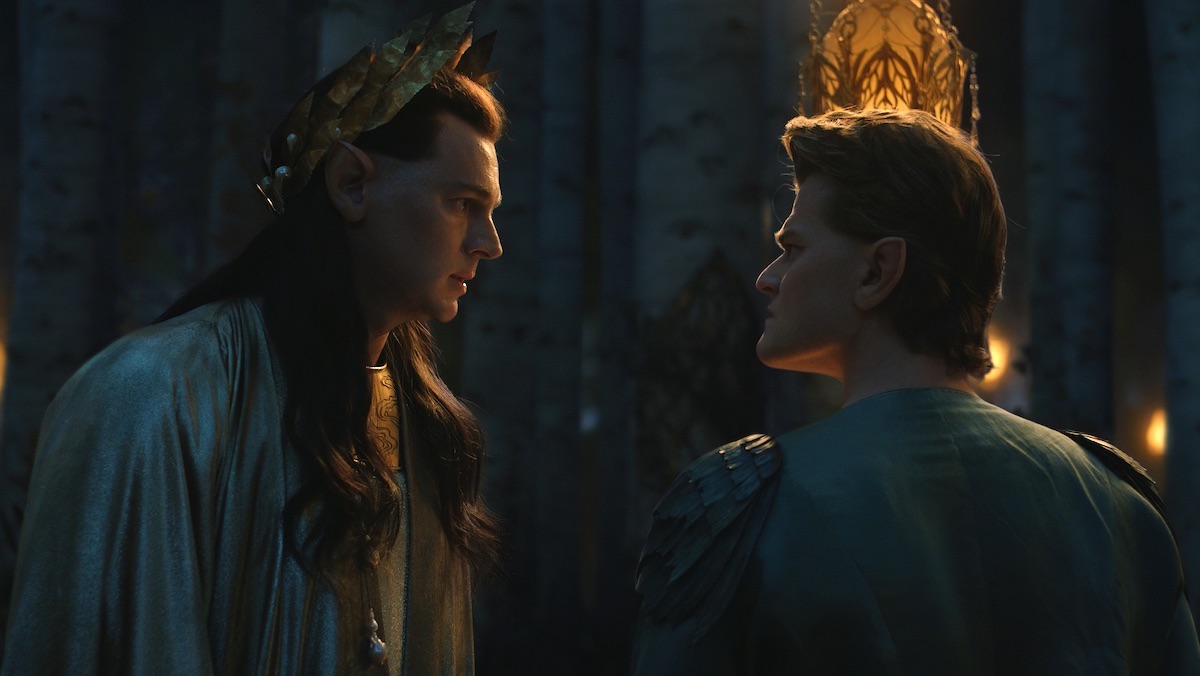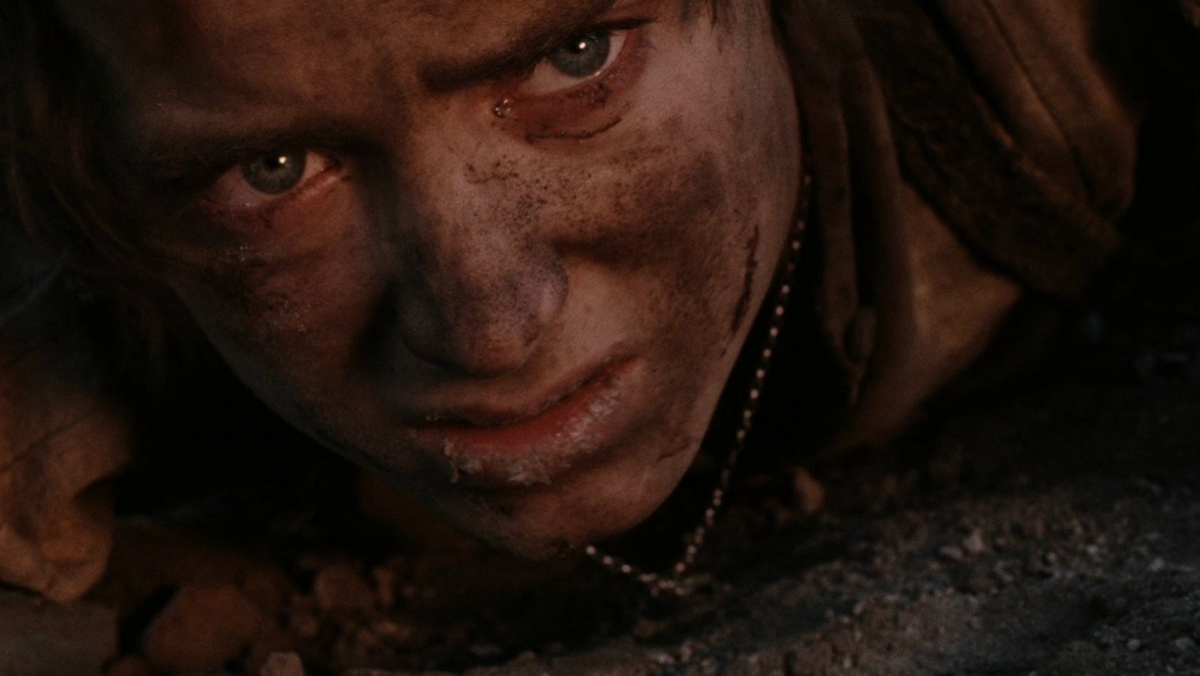In The Rings of Power‘s fifth episode, Poppy Proudfellow regaled the Brandyfoots with her mother’s walking song. It’s a beautiful ode to all Harfoots who leave the safety of home for a dangerous journey to distant lands. But it’s message of hope also speaks to the uncertain path so many in Middle-earth now face. And yet, it’s significance doesn’t end just with just the show’s tale. The song also connects to The Lord of the Rings in ways that make it far more meaningful to both stories.
The sun is fast fallin’ beneath trees of stone
The light in the tower no longer my home
Past eyes of pale fire
Black sand for my bed
I’d trade all I’ve known for the unknown ahead
Poppy’s song, officially titled “This Wandering Day,” comes from the show’s composer Bear McCreary. The lyrics make clear why it would Middle-earth’s small folk would sing it during their Great Migration. It’s about leaving home for the call of “lands far away.” And while they know that journey will be difficult, it’s one they walk because they have faith the destination will make their suffering worth it.

Call to me, call to me, lands far away
For I must now wander this wandering day
Away I must wander this wandering day
But though the song is by and for Harfoots with their “short” legs, it also applies to the many others facing an uncertain future during Middle-earth’s Second Age. Númenóreans must leave their island to face the growing evil Galadriel warns of. Just as Lord Halbrand must return to the native Southlands he had forsaken, a place where men are fighting with a choice to stand with or against Sauron’s forces.
Meanwhile, Elrond and all elves will have to flee Middle-earth unless dwarves find the faith needed to follow a path of unlikely friendship.

Of drink I have little
And food I have less
My strength tells me no
But the path demands yesMy legs are so short
And the way is so long
I’ve no rest nor comfort
No comfort but song

No one on The Rings of Power knows what awaits them in the dark days ahead. They just know they have no choice but to answer a call of lands far away. They must move forward with nothing more than hope they will find a better world at the end of their journey.
Sing to me, sing to me, lands far away
Oh rise up and guide me this wandering day
Please promise to find me this wandering day

But while this song was written for The Rings of Power, it takes inspiration from one of J.R.R. Tolkien’s most memorable lines. (Which itself is a reversal of a well-known quote.) In The Lord of the Rings: The Fellowship of the Ring, Gandalf writes a letter to Frodo that includes a poem to help confirm (which it does) anyone calling themselves Strider is really Aragorn. That passage opens with these two lines, later repeated by Bilbo during the Council of Elrond: “All that is gold does not glitter/Not all those who wander are lost.”
That second line also appears in the final verse of Poppy’s walking song.
At last comes their answer
Through cold and through frost
That not all who wonder or wander are lost
No matter the sorrow
No matter the cost
That not all who wonder or wander are lost

That connection adds an even greater layer of meaning to a song already rife with it. But it might very well soon prove to be even more important. If the Stranger really is an early incarnation of Gandalf, that means thousand of years before he wrote that line of poetry for Frodo, Gandalf initially heard the Hobbit’s ancestors sing it. The words that helped Frodo trust Strider, an act that ultimately saved the world, came not from the wizard. They came from Frodo’s own kind, the very people who first showed Gandalf the worth of small folk.
And in that way, it’s as though Poppy Proudfoot’s entire song is not merely about the Great Migration, it’s about Frodo’s own journey to Mordor. Past eyes of pale fire, with little food or drink, no matter the cost, some day a perilous path will demand Frodo walk it so he can destroy the One Ring before leaving for the distant lands of Valinor.
(If you haven’t already, listen to this song while thinking about Frodo, Sam, Merry, and Pip.)

Tolkien’s The Hobbit and The Lord of the Rings trilogy are full of songs that tell tales of great deeds and heroes, tragedy and heartbreak. They’re the memory of all that has come before, memories that celebrate good times, warn of past mistakes, and light the way on the darkest paths.
Now The Rings of Power has honored the author’s legacy by giving us a song that is far more beautiful than the Harfoots who sang it ever could have imagined. It’s the song for their descendants who will answer calls to wander far from the Shire. Journeys Gandalf knew they could make because he had seen the bravery of Middle-earth’s noble-hearted small folk.
Mikey Walsh is a staff writer at Nerdist. You can follow him on Twitter at @burgermike. And also anywhere someone is ranking the Targaryen kings.
The post How THE RINGS OF POWER’s Walking Song Connects with THE LORD OF THE RINGS appeared first on Nerdist.
Source: Keulisyuna
0 Comments